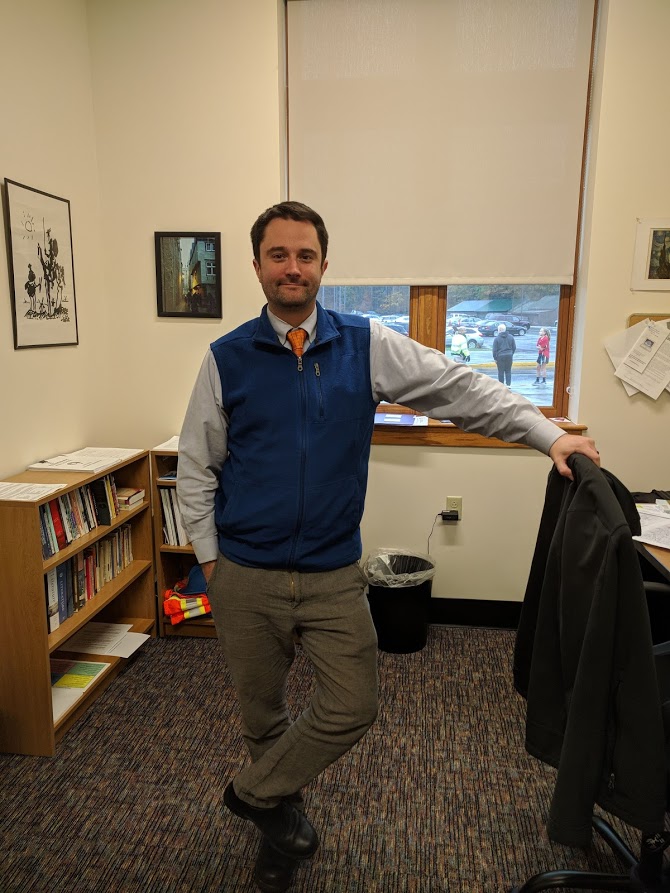An Interview with Mr. Putnam
While we tried to retain Mr. Putnam’s voice, answers have been edited for clarity and brevity.
What brought you to Kennebunk?
I was ready for a transition in my career after teaching for 14 years, and I had, over the course of my career, layered new responsibilities, most recently with the IB coordinator position at Gray-New Gloucester High School. I decided that I needed something different. In fact, every four to five years I need something new. I was ready for not just a change but something more. I had done, over the course of the second half of my career, a lot of organizational work with schools. I felt that I had something to contribute to the assistant principal job, which I think is going to work out really well. Beyond that, I have been living down here in Kennebunk or Kennebunkport for a couple years, so it made the most sense to be in the community in which I live. I was happy to make the transition here.
There are a lot of new initiatives this year. Can you talk about how these came to be?
Administration met over the course of the summer, and we talked about the fact that this year will be different with all of us being under one roof. Of course, the primary concern of the administration is to make sure that the building is safe and secure, so we had a variety of issues we felt we could resolve by making sure we knew where people were and where they were going at all times. Making those relatively small changes may feel big to the individual student, but we felt they would help us make sure that the school was safe and secure. Of course, schools and rules and all of those things are living, ongoing, and changing. We never meant to change things without considering how the school grows and develops. The changes aren’t necessarily permanent. We are always willing to consider growth.
What made you want to be an administrator?
I always wanted to be a teacher, and becoming an administrator is the next logical step in being an educator. It’s a way to teach, but in a whole new way.
Did being an English teacher inform your administrative role in some way?
I think it does. I think that my experience with literature has taught me a lot about living and who people are. Beyond that, being an effective communicator is a really important part of being in administration. Being able to communicate effectively, both in writing and through speaking, is a big part of being an English teacher, but it’s a big part of being an educational leader as well.
What’s your philosophy on administration and education?
Big things. Recently I’ve been reading about Carol Dweck and mindsets. She defines a growth mindset or a fixed mindset, and I think that acknowledging that students and educators have the potential for continuous improvement is important. Its important, both as a teacher and as an administrator, to think about the complicated critical ideas at the heart of learning.
Okay, enough of the serious business, let’s get to know you.
What kind of music do you like to listen to?
I listen to a broad range: classical, jazz, hip hop, rock, bluegrass, and folk. I am willing to listen to a lot of different things.
There is a rumor that you have been in a band. Care to elaborate for our readers?
Yes. I played pretty informally, generally speaking. I played bass guitar with some people a little bit older than me. We played a lot of rock and alternative music, but I haven’t played with them recently.
I have heard that you’ve written a play, can you tell me about that?
I dabbled in little pieces of writing here and there. It was written as part of a creative approach for the University of Maine Farmington honors scholar program. You could approach this program in a creative or academic way, and this was written as the capstone. It’s called Waiting for Grace, and it’s not very good. But that’s okay.
You also wrote a children’s book as well?
I did. It hasn’t been illustrated yet, about a little bird who got blown out of his nest and has to find a way home. It’s called Little Didino, a play on words of ‘little did he know’. I would eventually like to find a way to illustrate it and get it published, but it’s not a priority for me right now.

